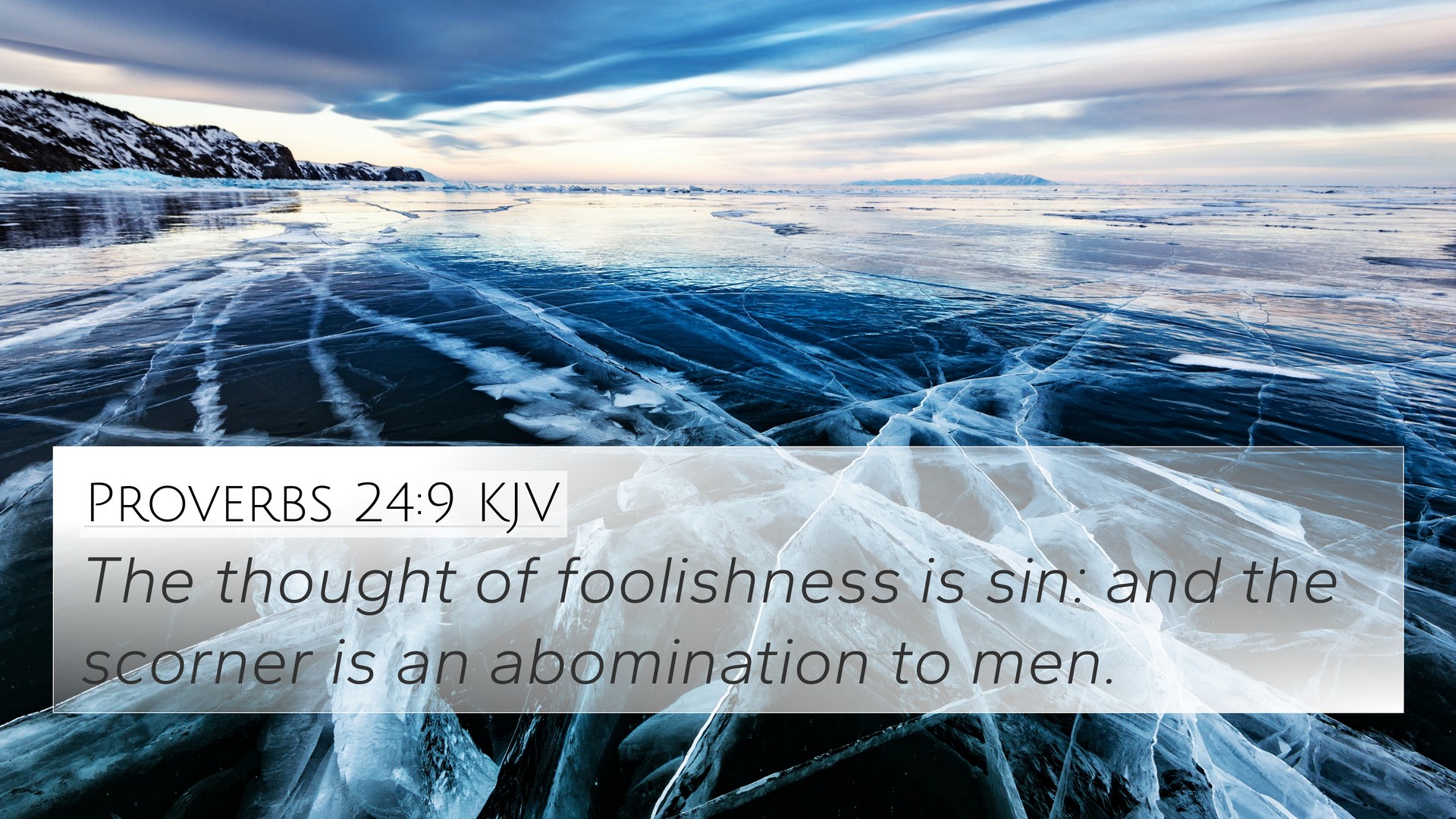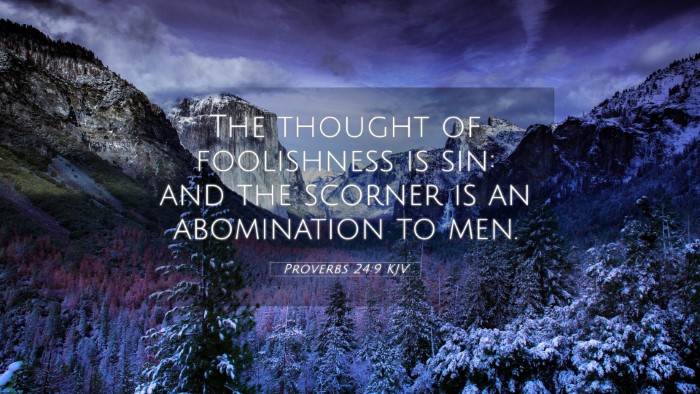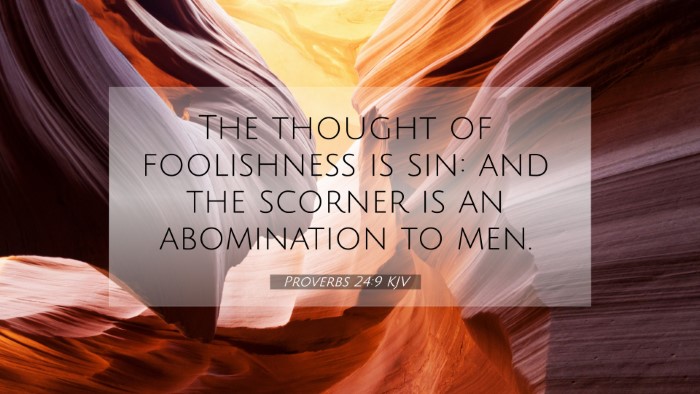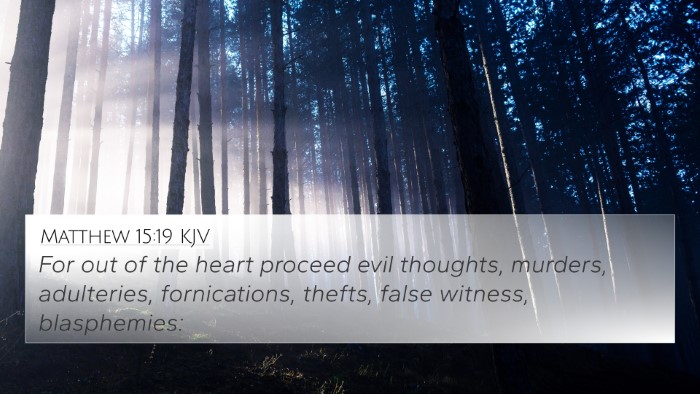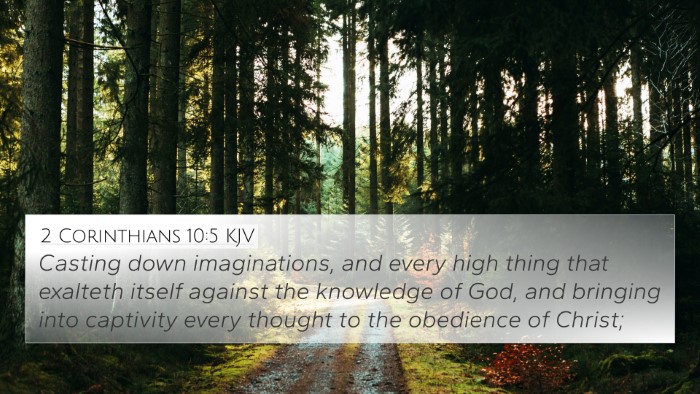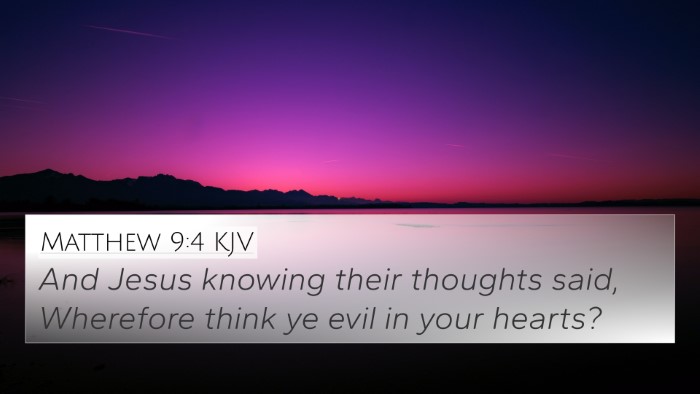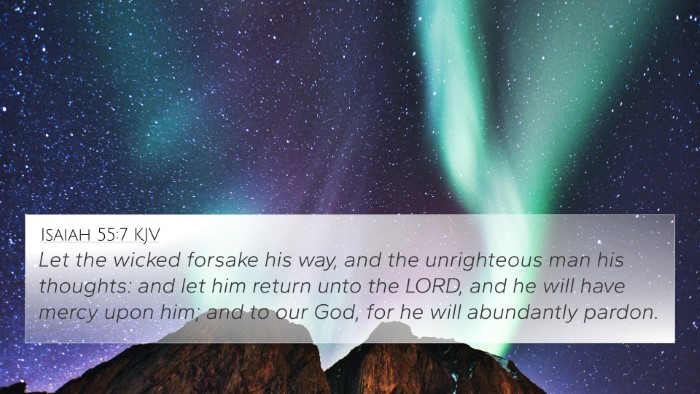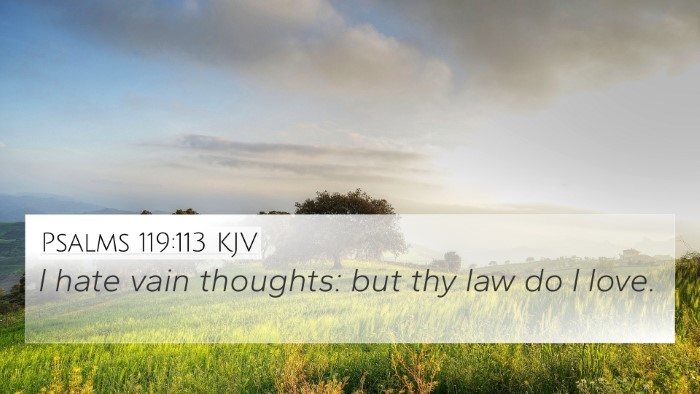Understanding Proverbs 24:9
Proverbs 24:9 states: "The thought of foolishness is sin: and the scorner is an abomination to men." This verse provides vital insights into the nature of wisdom and folly in the light of divine morality.
Meaning and Interpretation
This proverb emphasizes that mere thoughts can carry moral weight. The "thought of foolishness" implies that a mindset or inclination towards foolishness is inherently sinful. Thus, sin begins in the heart and mind before manifesting in outward actions.
Insights from Commentaries
Matthew Henry's Commentary
Matthew Henry notes that foolish thoughts lead to sinful actions. He emphasizes that a person's mindset shapes their behavior. Therefore, folly is not just a lack of knowledge but an active rejection of wisdom, which aligns with the Biblical worldview that sin is not only found in deeds but also in the intentions of the heart.
Albert Barnes' Notes
Albert Barnes interprets the "scorner" as one who not only sees wisdom but actively derides it. This attitude leads to a broader societal rejection of righteousness, thus becoming an "abomination" or strong offense to others. A scornful heart stifles progress in wisdom for both self and community.
Adam Clarke's Commentary
Adam Clarke expands the definition of "foolishness," indicating that it represents a state of rebellion against God’s order. Clarke suggests that most sins originate from a foolish heart that disregards God’s precepts. Therefore, individuals should strive for thoughtful engagement with the Word of God to cultivate wisdom.
Cross-references
Proverbs 24:9 connects with several key biblical themes and verses. Below are some significant Bible verse cross-references illuminating its meaning:
- Proverbs 1:7 - "The fear of the Lord is the beginning of knowledge: but fools despise wisdom and instruction." This verse parallels the concept that wisdom begins with a reverent attitude towards God.
- Proverbs 14:16 - "A wise man feareth, and departeth from evil: but the fool rageth, and is confident." Here, the dichotomy between the wise and the foolish is further explored, emphasizing the moral implications of one's disposition.
- James 1:14-15 - "But every man is tempted, when he is drawn away of his own lust, and enticed. Then when lust hath conceived, it bringeth forth sin..." This New Testament scripture connects human thought with sin, reinforcing that internal desires lead to external actions.
- Romans 1:22 - "Professing themselves to be wise, they became fools." This verse highlights the dangers of prideful folly, linking both the Old and New Testament warnings against arrogance in wisdom.
- Matthew 12:34 - "O generation of vipers, how can ye, being evil, speak good things? For out of the abundance of the heart the mouth speaketh." Here, Jesus states the principle that thoughts are the root of spoken words and actions, resonating with the essence of Proverbs 24:9.
- 1 Corinthians 1:25 - "Because the foolishness of God is wiser than men; and the weakness of God is stronger than men." This verse invites believers to consider divine wisdom versus human folly.
- Psalm 53:1 - "The fool hath said in his heart, There is no God..." This resonates with the idea that a foolish mindset leads to sinful denial of God’s existence.
- Galatians 6:7 - "Be not deceived; God is not mocked: for whatsoever a man soweth, that shall he also reap." This aligns with the concept of thoughts leading to actions and consequences, further exemplifying the wisdom in Proverbs 24:9.
- Proverbs 13:19 - "The desire accomplished is sweet to the soul: but it is abomination to fools to depart from evil." The connection reflects the struggle between wisdom and folly, emphasizing the beauty of true wisdom.
Thematic Connections
Examining the thematic Bible verse connections shows a rich inter-Biblical dialogue concerning wisdom, folly, and the moral implications of one's thought life. The scriptures collectively urge individuals to guard their hearts and focus on cultivating thoughts aligned with God’s truth.
Comparative Bible Verse Analysis
By implementing cross-referencing Bible study methods, such as comparing Proverbs 24:9 with the New Testament teachings of Jesus and the Apostles, one uncovers a consistent biblical theme: the profound impact of thought on spiritual health and behavior.
Tools for Bible Cross-Referencing
Utilize various bible reference resources and cross-reference guides to deepen understanding. Methods like Bible concordances and systematic studies can help locate relevant scriptures, enhancing the comprehension of Proverbs 24:9 and its profound implications for personal righteousness.
Conclusion
Proverbs 24:9 serves as a potent reminder of the significance of our inner thoughts. By exploring the connections between Bible verses and employing a cross-reference system, believers can gain greater insights into the interwoven narratives of scripture that speak to the need for wisdom and the dangers of folly.
